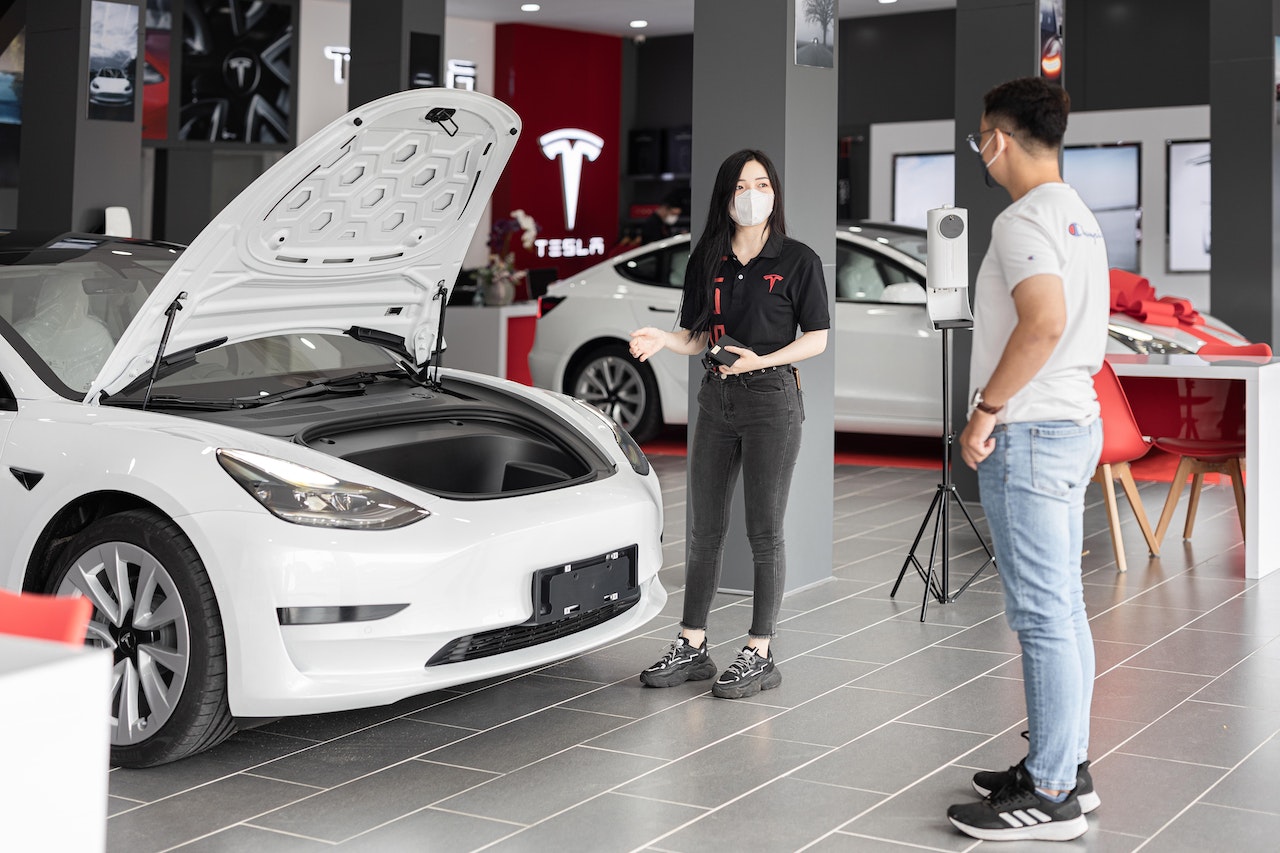
Buying a car is an exciting endeavor that many of us eagerly anticipate. The prospect of freedom, convenience, and the allure of a brand-new vehicle can be exhilarating. However, it’s crucial to approach this significant investment with careful consideration. Rushing into a car purchase without proper research and planning can lead to financial stress and disappointment down the road. This comprehensive guide will explore the essential factors you should consider before buying a car to help you make an informed decision.
Table of Contents
Budgeting for Your New Car
Budgeting for your new car is a crucial step in the car-buying process, and it’s essential to consider various financial aspects before making a decision. When exploring options for car finance in Brisbane or your city, the first step is determining your budget. Calculate your monthly income and expenses, including any existing financial commitments. By understanding your financial limits, you can avoid overextending yourself and select a car that aligns with your financial stability. Additionally, it’s vital to consider long-term costs beyond the initial purchase price, such as insurance, fuel, maintenance, and potential repairs. Factoring in these ongoing expenses will give you a more accurate picture of the true cost of owning a car.
When it comes to car finance, exploring financing options is another significant aspect of budgeting. This involves researching different lenders, interest rates, and loan terms to find your budget’s most suitable financing arrangement. Whether you choose to secure a car loan from a local bank or explore dealer financing options, understanding the financing process will empower you to make a well-informed financial decision. By incorporating car finance into your budgeting considerations, you can ensure that you find the right car and secure the most favorable financing terms to make your new car purchase a sound and affordable investment.
Identifying Your Needs and Lifestyle
Identifying your needs and lifestyle is a critical step in the car-buying process. To make an informed choice, consider how the car will fit into your daily life. Start by assessing your transportation needs, such as the daily commute, family size, or recreational activities. This evaluation will help you determine the size, capacity, and features required for your vehicle. Additionally, think about your environmental concerns and fuel efficiency preferences. If you’re concerned about environmental impact, you might explore eco-friendly options like electric or hybrid cars. By aligning your car choice with your specific lifestyle and values, you can ensure that your new vehicle not only meets your practical needs but also enhances your overall quality of life.
New vs. Used Cars
The decision between buying a new or used car is a fundamental choice that can significantly impact your car-buying experience. When considering a new car, you benefit from having the latest features, technology, and a full manufacturer’s warranty, providing peace of mind and often fewer repair expenses during the initial years of ownership. However, new cars tend to come with a higher upfront cost and can depreciate rapidly in the first few years, which may not make them the most cost-effective option for everyone.
On the other hand, choosing a used car can be a more budget-friendly option. Used cars typically come at a lower initial price point, and they tend to depreciate more slowly than new cars. However, used cars may come with some wear and tear, and there might be uncertainty about their maintenance history. To mitigate these concerns, you can explore certified pre-owned (CPO) vehicles, which undergo thorough inspections and come with warranties, combining some of the benefits of both new and used cars. Ultimately, the choice between new and used depends on your budget, priorities, and how much value you place on having the latest features versus cost savings.
Researching Makes and Models
Researching makes and models is a critical step in the car-buying process. It involves delving into the world of car manufacturers and specific vehicle options to find the perfect match for your needs and preferences. Start by identifying reliable car brands known for producing dependable vehicles, using online reviews, consumer reports, and reliability rankings as valuable resources. Once you’ve narrowed down reputable brands, research specific models within those brands, taking into account factors such as size, fuel efficiency, safety features, and resale value. Reading expert and consumer reviews can provide insights into a car’s performance, reliability, and overall satisfaction. Additionally, seek recommendations from friends, family, or colleagues who have experience with the models you’re considering. Evaluating resale value is also crucial, as it can impact your long-term ownership costs and the return on investment when it’s time to sell or trade-in your vehicle.
Understanding Maintenance and Repairs
Before purchasing a car, it’s crucial to assess the long-term maintenance costs associated with the specific make and model you’re considering. Some vehicles are known for being more affordable to maintain due to readily available parts and standardized servicing, while others may have higher maintenance expenses. Additionally, consider the availability of service centers and parts for the chosen car, as easy access can simplify maintenance and potentially reduce costs. Finally, investigate the manufacturer’s warranty coverage, as a robust warranty can provide peace of mind and help save money on repairs during the initial years of ownership. Being well-informed about maintenance and repair aspects ensures that you can budget effectively and make educated decisions to keep your vehicle running smoothly.
Safety Features and Ratings
Safety features and ratings are paramount considerations when buying a car. Prioritizing safety is not only crucial for your well-being but also for the protection of your passengers and other road users. Modern vehicles come equipped with a wide range of safety features, from airbags and antilock brakes to advanced driver-assistance systems like adaptive cruise control and automatic emergency braking. Before making a purchase, it’s important to understand the significance of these safety features and how they contribute to accident prevention and passenger protection. Additionally, consult safety ratings and testing results from organizations like the National Highway Traffic Safety Administration (NHTSA) and the Insurance Institute for Highway Safety (IIHS) to gauge a car’s crashworthiness and safety performance. Investing in a car with top-notch safety features and high safety ratings can provide invaluable peace of mind and enhance the overall safety of your driving experience.
Test Driving and Inspection
Never underestimate the importance of a test drive and a thorough inspection before making your decision. Test driving allows you to assess how the vehicle handles, its comfort, and how well it suits your driving style. Pay close attention to factors like noise levels, visibility, and ride quality during the test drive. Additionally, be sure to inspect the vehicle thoroughly, checking for any unusual sounds, vibrations, or warning lights. Test the brakes, acceleration, and steering responsiveness to ensure they meet your expectations. Consider having a trusted mechanic perform a pre-purchase inspection for used cars to identify hidden issues. Taking these steps ensures that the car you’re interested in is in good condition and aligns with your driving preferences and expectations.
Negotiating the Deal
Negotiating the deal is a crucial part of the car-buying process that can significantly impact your final price. It’s essential to approach negotiations confidently and clearly to understand the vehicle’s fair market value. Research the car’s value, and be prepared to negotiate the price, financing terms, and any additional add-ons or services. Dealerships may offer manufacturer incentives, dealer promotions, or rebates, so be sure to inquire about these potential discounts. If you have a trade-in vehicle, consider negotiating its value separately from the new car purchase. Remember that patience and willingness to walk away from a deal can be powerful negotiation tactics. You can secure a fair and advantageous deal on your new car by being well-informed and assertive during the negotiation process.
Finalizing the Purchase
Before signing the purchase agreement, thoroughly review all the terms, conditions, and costs, including financing details, taxes, and fees. Confirm the warranty coverage and any additional services or protections you’ve agreed upon with the dealer. Double-check that all required paperwork is accurately completed, including the title transfer and vehicle registration, ensuring the car is properly registered in your name. Keeping copies of all documents is essential for your records. This meticulous approach to finalizing the purchase helps avoid misunderstandings and ensures that you’re making a well-informed and secure investment in your new vehicle.

In the exhilarating journey of buying a car, staying grounded and making well-informed decisions is essential. By carefully considering your budget, transportation needs, car options, safety features, and other factors outlined in this guide, you can confidently embark on your car-buying adventure. Remember that the right car for you isn’t just about aesthetics; it’s about aligning your purchase with your financial goals and lifestyle for a satisfying and responsible ownership experience. Take your time, do your research, and enjoy the process of finding the perfect car for your needs.
